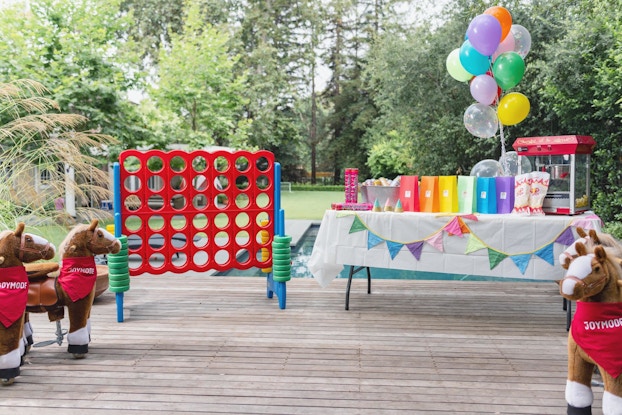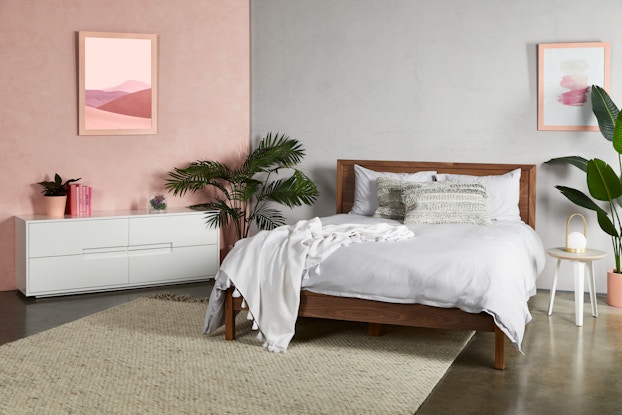
There’s a growing population of consumers who are willing to pay good money for the privilege of not having to own something.
For them, short-term access to clothes, furniture, sneakers, sports equipment, camping gear, jewelry and housewares, is preferable to owning, storing, moving, and eventually having to dispose of purchases.
Online rental brands like Fernish, Feather, Everset, Rent the Runway, Haverdash, Le Tote, Gwynnie Bee and Joymode — offering goods from clothing and furniture to party supplies and experiences — promise to remove the burden of ownership and, for a monthly membership or subscription fee, supply renters with a rotating assortment of goods.
Mainstream brick-and-mortar retailers, including Macy’s, Crate & Barrel, West Elm and Ann Taylor are also jumping on the trend.
A bold expression of the sharing economy
The shift toward the sharing economy, evidenced by the rise of Uber to Airbnb, now has startup entrepreneurs and traditional retailers looking at rentals as a new source of revenue.
Rentals of consumer goods generated $60 billion in revenue in the United States last year, excluding vehicle and home rentals, according to retail analytics firm GlobalData.
A survey by JLL for its 2019 “Future of Retail” report found that 57.3% of all consumers are willing to rent, rather than buy, if the products are “well-made and trendy.” For millennial and Generation Z consumers, the percentage was over 70%.

Michael Barlow, co-founder and CEO of Fernish, a “furniture as a service” rental startup with operations in Los Angeles and Seattle, believes the trend is only going to get bigger.
“Generation Z is not going to have the expectation of buying, owning, moving, selling, and storing furniture every time they move and go between different jobs or different life moments,” Barlow told CO—.
“Since I just moved and I am about to move again, I wish I didn’t own as much stuff as I do,” Lauren Boser, a 27-year-old who works in sales in Los Angeles, told CO—.
Her current apartment didn’t come with a refrigerator, so she is renting one for $28 a month. “I could have bought one on Craigslist, but I really don’t want to own a fridge,” she said. “A fridge is the hardest thing to move.”
Commitment-free consumers
Renting is a way to try new things without the commitment of a purchase, James Cook, Americas Retail Director of Research for JLL told CO—.
“It’s like renting a movie for a night — it’s not like I have to live with it for the rest of my life,” Cook said. “You’re going to be more likely to be more experimental,” he said.
Concerns about sustainability also are fueling the rental economy, Cook said.
“If you’re not really sure if you’re going to have a place for the couch a year from now when your lease is up, it feels good to know that you’re not going to be throwing it into a landfill,” he said.
Rent the Runway, the company that began renting designer dresses in 2009, and now has a unicorn valuation of $1 billion, has led the way in convincing investors and traditional retailers that rental is a viable fashion business model.
[Read more: How Rent the Runway Thrives on Word-of-Mouth Marketing.]
Generation Z is not going to have the expectation of buying, owning, moving, selling, and storing furniture every time they move and go between different jobs or different life moments.Michael Barlow, co-founder and CEO of Fernish
Experience more
The rental economy is taking flight because demographics like millennials and Gen Z desire a variety of experiences without the permanent price tags. Read on for more current business trends.
Rental as the new retail
Bloomingdale’s, Banana Republic and Urban Outfitters have announced rental programs within the past four months, and Macy’s, the nation’s largest department store chain, is preparing to offer one.
“We know that our customers want variety and discovery,” Macy’s CEO Jeff Gennette told investors and analysts in August. “We needed to play in this game.”
Macy’s and Bloomingdale’s rentals will be managed by Caastle, a “clothing as a service” startup launched last year by the founder of Gwynnie Bee. Caastle handles rentals for a growing list of retailers, including Ann Taylor, American Eagle, Vince, Express, and Banana Republic.
In furniture, Crate & Barrel rentals are available through Fernish, and West Elm is offering throw pillows, bedding, and home décor accessories through Rent the Runway. IKEA plans to test furniture rentals in 30 markets in Europe next year.
Furniture rental companies have been around for decades, but they have been rent-to-buy businesses, and targeted low-income, credit-challenged customers. Rent-A-Center, founded in 1986, has over 3,000 stores in North America.
The business model of the new rental startups is rent-instead-of-own, although renters usually have the option to purchase items they want to keep.
‘Furniture Rental 2.0’
“You could think of us as Furniture Rental 2.0, but our customers have never been exposed to any of the legacy furniture rental brands. So for them it’s Furniture Rental 1.0,” Fernish CEO Barlow said.
“One of the taglines we love to use is ‘Subscribe to the home you love,’” Barlow said. Instead of disposable “fast furniture,” he said, renters have access to better quality furniture that can be reused. And when they are done with it, “You can call us and say you’re moving on in life and we’ll come pack everything up,” he said.
The typical Fernish customer, Barlow said, is 23 to 35 years old and pays between $150 and $250 a month for their rentals.
The privately-held company does not disclose its finances. Barlow said Fernish has “multiple thousands of subscribers” and revenue in the millions.
“We’ve really scaled the business quickly this year and it’s just been great to see the demand,” he said.

Renting experiences
Another Los Angeles-based rental startup, Joymode, offers “experiences.” Customers can rent everything they need for a camping trip, a kid’s birthday party, an outdoor movie night or 200 other experience “bundles.” Joymode also rents bundles for more mundane experiences such as steam cleaning carpets or power washing a deck.
Joymode members who pay $22 to $29 a month get unlimited access to new bundles whenever they return one. Non-members can pay for a one-time rental.
Joymode is designed “to make it as easy as pushing a button on your phone to have that magical karaoke night, or to do something as simple as washing your car,” Joymode founder Joe Fernandez told CO—.
Joymode was launched in 2016. It currently rents out 25,000 products a month, Fernandez said, and that number is growing rapidly. “More products left our warehouse in July than the whole year of 2017,” he said.
The average Joymode user, Fernandez said, spends $417 with the company in a year and gets products that would cost $5,200 at retail. Without Joymode, “all that stuff would be sitting in their closets or landfills, and all the clutter that comes with that,” he said.
Home improvement chain Lowe’s is an investor in Joymode, and customers have the option to pick up and drop off their bundles at the Lowe’s store in Pasadena.
Return on the rental investment
The jury is still out on the long-term profitability of the rental economy.
Traditional retailers see rentals as a growth opportunity at a time of declining store sales, Alex Fitzgerald, manager in the consumer retail practice of A.T. Kearney, a global strategy and management consulting firm, told CO—.
Retailers, Fitzgerald said, need to weigh three key questions before making the investment in rentals. “Is this a source of new customer acquisition, is this something that we need to do because otherwise we lose our customer, or is this a way for us to be able to increase share of wallet and increase spend at our stores?”
The answer is “probably a little bit of all three,” Fitzgerald said. “This market is so young, and although there’s a lot of activity right now, the long-term success, long-term growth that we can see from it is still to be defined.”
CO— aims to bring you inspiration from leading respected experts. However, before making any business decision, you should consult a professional who can advise you based on your individual situation.
CO—is committed to helping you start, run and grow your small business. Learn more about the benefits of small business membership in the U.S. Chamber of Commerce, here.







